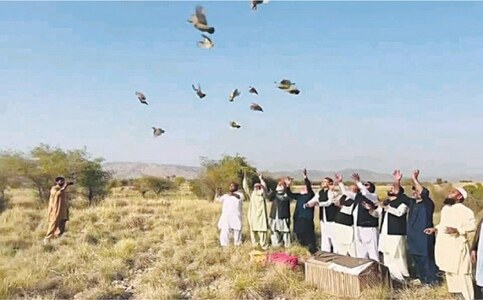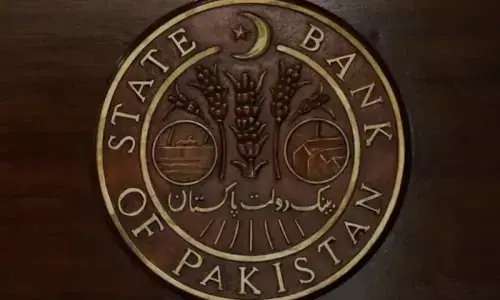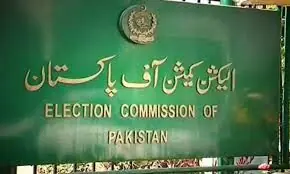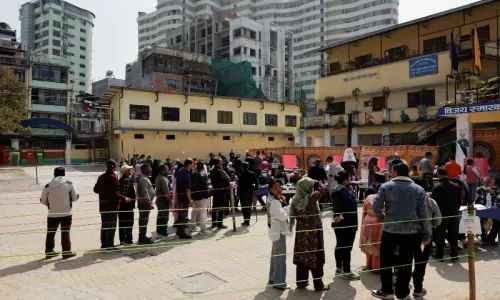The President of Pakistan on April 18 gave assent to a much-publicised Bill passed by the parliament for extending jurisdiction of superior courts to the Federally Administered Tribal Areas, which was a longstanding demand of the people of those areas.
The Supreme Court and High Court (Extension of Jurisdiction to Federally Administered Tribal Areas) Bill 2018 was passed by the National Assembly on Jan 12 and subsequently by the Senate on April 13, 2018.
While the euphoria over the enactment of this law still persists among its supporters, its enforcement is subject to a notification or different notifications for different tribal areas. Under the law, it is up to the federal government to notify the enforcement of this Act to the entire Fata or its different parts at specific time.
Section 1 (2) of the Act provides: “It shall come into force on such date or dates in such Federally Administered Tribal Areas or part thereof, as the Federal Government may, by notification in the official Gazette, determine from time to time.”
The government might notify its applicability to some parts of different tribal agencies whereas remaining parts continue under the existing legal framework in which they have no constitutional legal forum available for the enforcement of their fundamental rights.
Similarly, once the Act is made applicable to any part of Fata there will be legal complications as the coexistence of the present Act and the colonial era Frontier Crimes Regulation (FCR), 1901, in its present form, is not possible.
There are several oppressive provisions of the FCR which are in conflict with the fundamental rights enshrined in the Constitution. There is likelihood that the moment the Act is enforced in any part of Fata, different provisions of FCR will be challenged before the Peshawar High Court on the touchstone of fundamental rights provided in the Constitution.
Presently, under the FCR the administrative officers, including political and assistant political agents, have also been serving as judicial officers. They have been conducting trials under the FCR as judicial magistrates. Such provisions are in conflict with Article 175 (3) of the Constitution, which in clear terms provides that the judiciary shall be separated from the executive.
The FCR continues to be the prime law governing the Fata. Successive rulers, both military and civilian, considered it an important legal instrument for ruling the Fata people. The FCR is believed to be a pro-bureaucracy law as the powers assigned to the administrative officers in tribal areas are unmatched.
The powers of a political agent under the provisions related to “territorial” and “collective” responsibilities of the tribal people still persist in this age when fundamental rights are considered inviolable.
The previous PPP government in the centre was taking credit of certain reforms in FCR in 2011, but time proved that those changes in the law were cosmetic in nature. While under Article (1) of the Constitution the Fata and Pata (Provincially Administered Tribal Areas) are part of Pakistan, through Article 246 and 247 these areas have been assigned different status. Normal laws of the land are not applicable there unless the President of Pakistan extend the same to Fata through separate notification, and governor of the province to Pata with the prior approval of the President.
One of the most controversial sub-clauses of Article 247 relates to barring the jurisdiction of superior courts in tribal areas. Article 247 (7) provides: “Neither the Supreme Court nor a High Court shall exercise any jurisdiction under the Constitution in relation to a Tribal Area, unless Majlis-e-Shoora (Parliament) by law otherwise provides; provided that nothing in this clause shall affect the jurisdiction which the Supreme Court or a High Court exercised in relation to a Tribal Area immediately before the commencing day.”
An Act was passed by the National Assembly in 1973 called “the Supreme Court and High Court (Extension of Jurisdiction to certain Tribal Areas) Act, 1973” which was published in official gazette on Feb 9, 1973. Through that Act the jurisdictions of SC and PHC were extended to Pata, including Chitral, Upper and Lower Dir, Swat, Malakand Protected Area, Shangla and Buner.
However, the inhabitants of Fata were deprived of the jurisdiction of superior courts till now.
The issue of superior courts’ jurisdiction in tribal areas remained under discussion in cases before the superior courts, including SC and PHC, and these courts are mostly hesitant to assume jurisdiction there in the light of the bar placed through Article 247 (7) of the Constitution.
At the time of establishment of the West Pakistan province through the Establishment of West Pakistan Act 1955, the territories of West Pakistan also included the tribal areas of Balochistan, Punjab and North-West Frontier and the States of Amb, Chitral, Dir and Swat.
Initially, through that Act the High Court was empowered to exercise jurisdiction in relation to the whole of the Province of West Pakistan. However, through the establishment of West Pakistan (Amendment) Act, 1955, an amendment was made in the relevant section so as to exclude from the jurisdiction of the High Court the special areas, including the tribal areas.
Interestingly, in 1961 the special Areas (Restoration of Jurisdiction) Order, 1961 was promulgated through which the High Court of West Pakistan was again empowered to exercise its jurisdiction in the Special areas, which also included tribal areas. However, the jurisdiction of the High Court was again taken away when the Constitution of 1962 was introduced.
This issue took another turn when the President’s Order No 29 of 1970 called as “Supreme Court and the High Court (Extension of Jurisdiction to Tribal Areas) Order 1970” was promulgated. Through that Order the appellate jurisdiction of the Supreme Court and Peshawar High Court was extended to tribal areas of Chitral, Dir, Swat, Kalam and Malakand Protected Areas, whereas other tribal areas (then called Centrally Administered Tribal Areas) had not been extended the said jurisdiction. Finally, when the 1973 Constitution was enacted the jurisdiction of superior courts to tribal areas was ousted.
Legal experts believe that to end the prevalent uncertainty the federal government should issue the required notification at the earliest for enforcement of the new Act so that the people of Fata should have the right to move the high court for enforcement of their fundamental rights, which under the present legal framework in Fata is impossible.
Published in Dawn, April 23rd, 2018

































